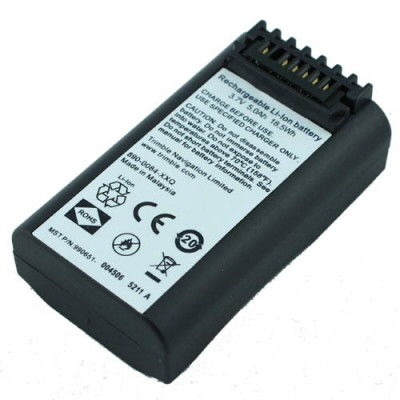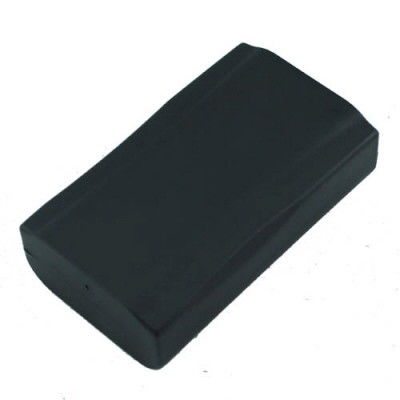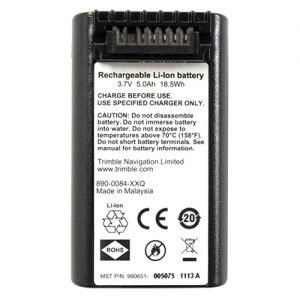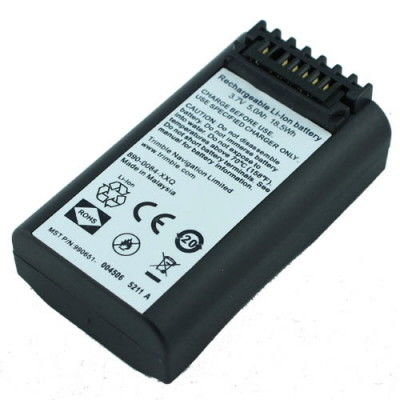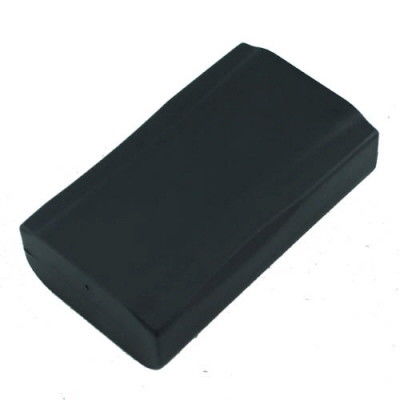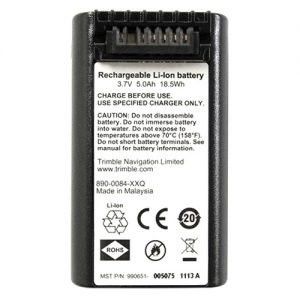-
Surveying Reflector Prism
-
Survey Mini Prism
-
360 Degree Prism
-
Total Station Prism
-
Prism Pole Bipod
-
Carbon Fibre Telescopic Pole
-
Telescopic Levelling Staff
-
Tribrach Adaptor
-
Instrument Tripods
-
Total Station Batteries
-
Total Station Battery Charger
-
Total Station Cable
-
Total Station Accessories
-
Surveying Instrument
3.7V 5200mAh Rechargeable Li Ion Battery For Spectra Focus Total Stations
| Voltage | 3.7V | Cell Type | Li-lon |
|---|---|---|---|
| Capacity | 5200mAh | Tmeperature | 10~40°C |
| Size | 75*41*41mm | Color | Black |
| Condition | New | Used For | Nikon NIVO M/C DPL-322 |
| Highlight | 5200mAh Rechargeable Li Ion Battery,3.7V Rechargeable Li Ion Battery,Total Stations Rechargeable Li Ion Battery |
||
Nikon 67201-01-SPN Rechargeable Li Ion Battery Nikon Nivo, NPL 322, Spectra Focus total stations
Model: 67201-01-SPN
Features:
- Equivalent To Nikon 67201-01-SPN Battery
- Up To 11-Hour Battery Life
- 3.7 Volts
- 5200 MAh Capacity
- Compatible With Nikon Nivo C And M Series, And Trimble TS662, TS635, TS862 Total Station
Specifications:
| Voltage | 3.7V |
| Size | 75*41*41mm |
| Type | Li-lon |
| Capacity | 5200mAh |
| Package | Individual Box Package |
| Warranty | 1 Year |
| Temperature | 10~40 °C |
| Used For | Nikon NIVO M/C DPL-322 |
Introduction:
This Nikon Rechargeable LiIon Battery is an important accessory for your Nikon Nivo M, Nivo C, NPL322, Spectra FOCUS 6 and FOCUS 8 Total Stations. With a battery life of approximately 11 hours, it allows surveyors to continue taking measurements and get the job done.
Used For:
This Li Ion Battery for Nikon and Trimble Total Stations is the ideal spare or replacement for the Nikon 67201-01-SPN battery. Works up to 11 hours, it is compatible with the Nikon Nivo C, Nivo M series, and Trimble TS662, TS635, TS862 total stations.
Charging the batteries
New and stored batteries
New NiCd and NiMH batteries reach their maximum capacity only after a few charging and discharging cycles. The batteries should be fully discharged and charged three to five times. NiMH batteries that have been stored and not used for an extended period (more than a month) should be refreshed simularly. For Li-Ion batteries, a single discharging and charging cycle is sufficient. The easiest way to perform this cycling is by using the GKL221 Charging Station which has a discharge function. Alternatively, the batteries can be charged and then placed in the related survey equipment during normal use and discharged until the equipment switches off.
Batteries in regular use
After use the battery can be placed in the charger until fully charged (the green light flashes). The charging time depends on the battery capacity and temperature.
Charging temperature
The charging temperature (ambient temperature) has a significant impact on the life of the batteries. Charging at high temperature can cause loss of capacity. These losses in capacity are irreversible. Even with several charging and discharging cycles, the original capacity can no longer be obtained. For optimal charging, we recommend that the batteries be charged at ambient temperatures as low as possible (+10 °C to +20 °C / +50 °F to +68 °F). The permitted temperature range in which charging can still be performed is between 0 °C and +35 °C (+32 °F and +95 °F).
Useful capacity
The temperature has a particularly significant effect on the useful capacity of a battery. In accordance with the operating range for the surveying instruments, the batteries can be operated from –20 °C to +55 °C (–4 °F to +131 °F). With reducing temperature the useful capacity drops rapidly. Continuous use in the upper temperature range (> +45 °C / +131 °F) shortens the life of the battery.
![]()
![]()
![]()




